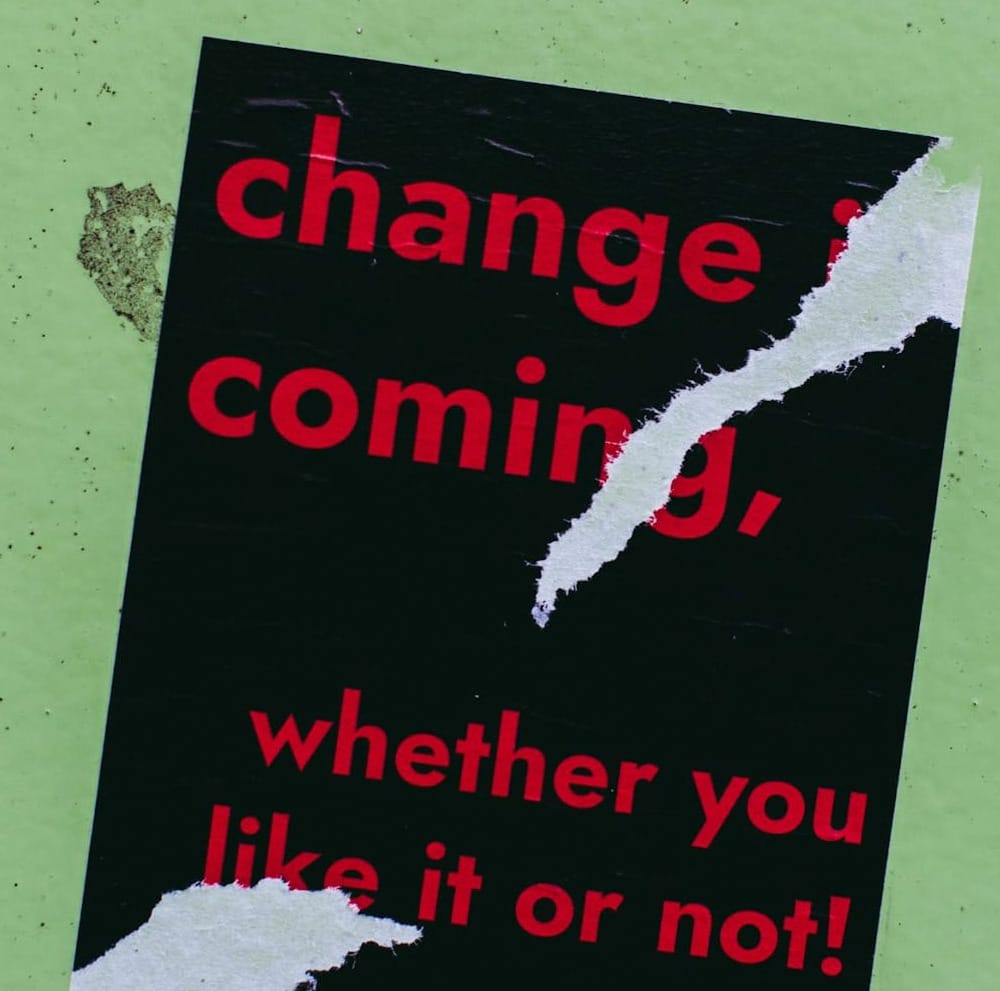What changes matter?

I'm thinking about this question today on at least two levels. First, personally. Am I doing enough, the right things, should I be doing differently or more in terms of trying to protect the freedoms and rights I think I care so much about? And, if not, why not? I see the threats, I understand the goals of those who are simultaneously lying and telling us exactly what they intend to do. I understand what's at risk. I believe that there's a vast hurricane of distraction being intentionally whipped up to engulf the media, while countless dependent clauses get stuck into legislation; protective guardrails get torn down; and backroom plans to ensure there is never another free and fair election (at least at the national level) in the United States get implemented.
Let me put it this way. I'm from New York and my father (who turned 91 yesterday!) was a practicing architect and real estate guy in the city from the 1960s-2000s. The red-capped golfer has been an unwelcome presence my entire life. There is no way on God's green earth he is putting his future in the hands of the voting people. We can be sure he's doing everything in his considerable power to make sure that doesn't happen - because he knows that the Big House awaits him if we ever get him out of the White House. I know what's at stake, I know what I can and can't do, I know some of what needs to be done - am I changing my ways enough to do all that I can?
The second level at which I'm thinking about this is in regard to all of civil society and philanthropy. I've spent decades trying to help people in these spheres see the water in which they swim (mixed metaphor, sorry) more clearly. To see a full ecosystem of change-making collectives and organizations and practices that reach deeper and more broadly than institutions such as nonprofits and foundations. Most recently I spent a decade trying to help these same people understand the many ways that the current political economy of technology (which is a fancy way of saying a handful of guys with too much power and money) is damaging to the democratic project. I tried to share information in useful ways, help people learn, and point them toward change.
I am fully convinced - from my personal and professional experience - that helping people learn new things in no way means they will change what they're doing. It's necessary, but by no means sufficient.
So when I read news stories about Bill Gates announcing he's going to spend $200 billion in the next 20 years, I don't stand and applaud with the media, I shake my head. Bill - if we don't stop what's happening in this country now - you'll be out $200 billion well before 2045. Either you spend it or this government or its successor will take it from you. When I read about foundations debating strategic versus trust based philanthropy, I roll my eyes. Talk about rearranging deck chairs on the Titanic.
And when I am not feeling as snarky as that above paragraph reflects, I wonder, really wonder, what gets foundations to change? We've seen some bold and encouraging announcements from some foundations, but is it really different or just more?
Much of what passes for discourse in philanthropy* makes decisions that are bound only by organizational norms seem like they're bound by legal requirements. Remember how the industry press celebrated the shift (which turned out to be temporary) in foundation behavior during the start of the pandemic? Suddenly grant reports could be a phone call and grant dollars became flexible. That is both an example of how small the changes actually were seen against the scale of the threat. Hundreds of millions of people dying and foundations "discover" they can be more flexible. Hmm. Not so impressive in hindsight.
What are the real constraints to foundations changing? Which would require legislation, regulatory action, or existential threats such as those coming from this administration, and which just require doing things differently? What are systemic limits or barriers and which are just because it has always been done a certain way? Years ago, Katherine Fulton told me that "organizations change when the pain of the status quo becomes greater than the pain of change." That's wise and helpful. How can foundation leaders distinguish between change for which they need legal permission and the changes they can make today?
I'll be exploring some of these questions with a few foundation leaders over the next several months, and will share what I learn here and in whatever the emergent form of the Blueprint series is going to be.
As I must do with myself, I hope all involved with recognize the existential urgency, the need to push through fear of failure, and that change is inevitable - the choice is in who controls the direction and endpoint of the change.
*I have at least three other topics I want to explore embedded in this sentence. I'll note them here in hope that I get around to exploring them more fully.
- The role of ancillary organizations (namely consulting firms) in making mountains out of molehills, and as a force for generating conformity, rather than imagination.
- The issue of taxing endowments (which I may delay because what I want to say will be misconstrued, misunderstood, and misused in this moment.)
- What do I think is the future of capital P philanthropy and U.S. civil society? I get asked this at least once a week. Here's the answer - I don't know. But I do have some thoughts, and will get them written down sometime.